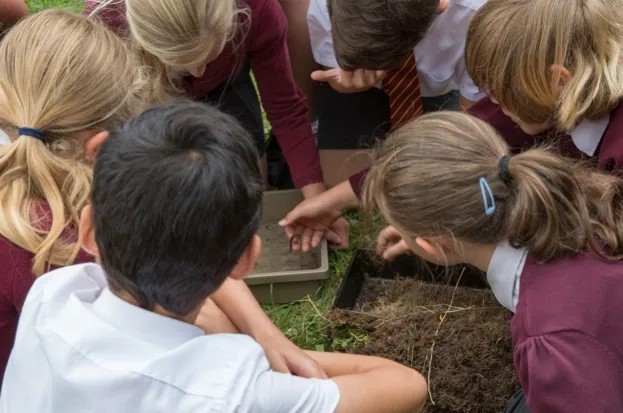Over the last two years, nearly 15,000 children from over 500 UK schools have been digging up parts of their playing fields to study the effect of climate change on our soils and ecosystems.
The first results from the research have now been published, and show strong seasonal patterns in the abundance of invertebrates, with large declines in the number of earthworms during dry weather, which is likely to affect breeding birds.
“This study quantifies for the first time how periods of dry weather in the summer can affect breeding bird populations like thrushes and starlings, which rely on earthworms and other soil invertebrates,” says Dr Blaise Martay, lead author of the study. “Many of these are declining in southern Britain, which our results suggest may be because they struggle to find enough food during hot dry summers.”
The school children were taking part in the What’s Under Your Feet? project run by EDF Energy and the British Trust for Ornithology (BTO), which involves digging into sections of the school playing fields once a term in October, March and June.
They then counted and identified the invertebrates found in the top 5cm of the soil, including beetles, earwigs, spiders and woodlice.

Scientists collated and analysed the data, and found that earthworms comprised 93.1% of the total soil invertebrate biomass.
“This project is one of the most exciting that I have been involved in – using carefully designed methods to engage children and teachers with real science,” says Dr James Pearce-Higgins, director of science at the BTO. “Not only is this helping to provide the evidence to tackle important problems, but hopefully will inspire some of the next generation of scientists.”
Read the full paper in Pedobiologica, Journal of Soil Biology.
Main image: School children digging for invertebrates. © Rydon Primary School

